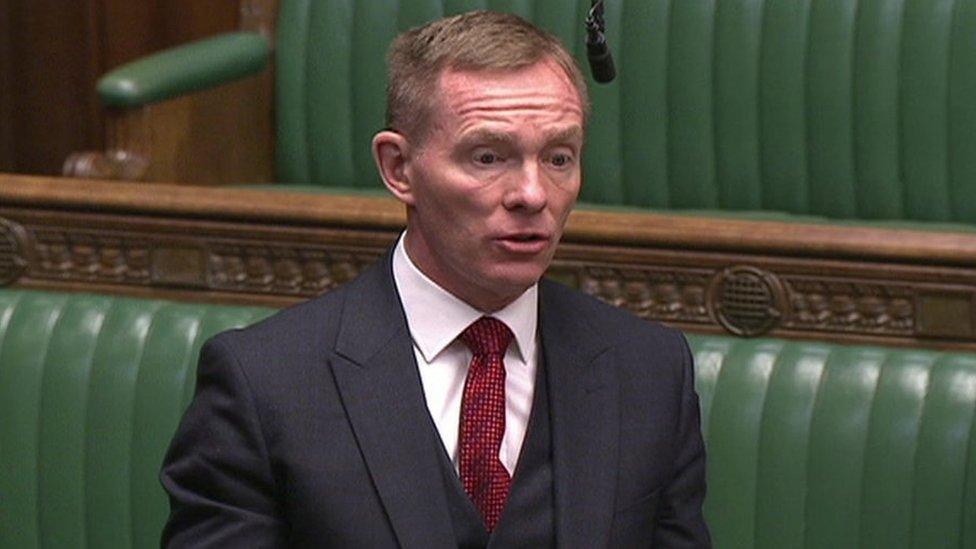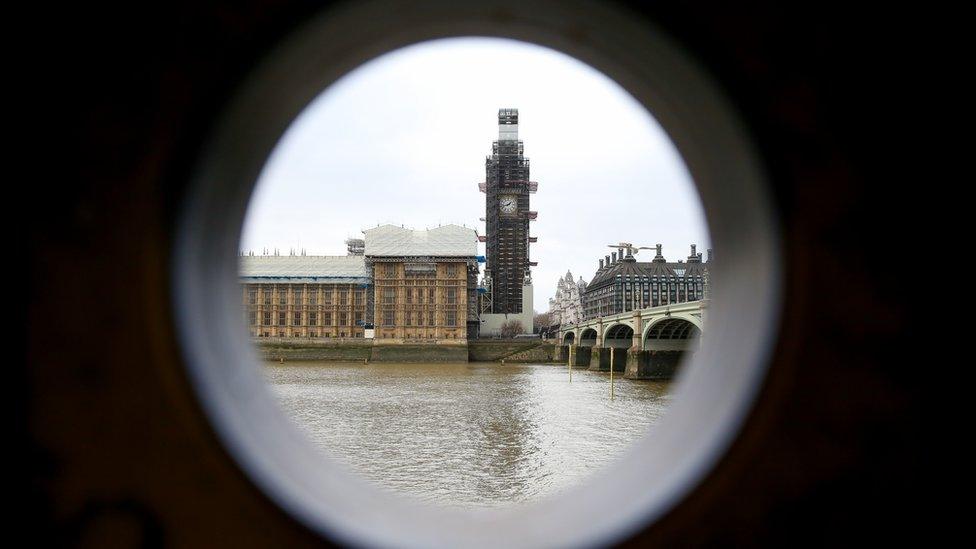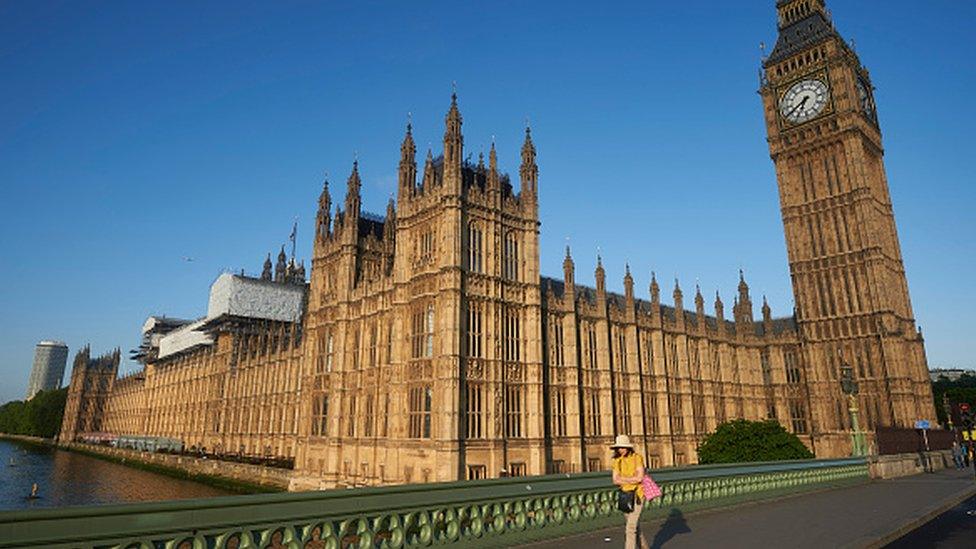APPGs: Reforms urged to protect Parliament from 'hostile foreign actors'
- Published

Sir Chris Bryant says tighter rules are needed to rein in APPGs
Campaign groups formed by MPs and peers should be banned from accepting money from foreign governments to help with running costs, a watchdog has said.
The Commons standards committee fears "hostile foreign actors" could seek to gain "improper access and influence" through the All Party Parliamentary Groups (APPGs).
It has recommended, external new rules on APPGs that it wants ministers to back.
The government says it is "carefully considering" the committee's proposals.
If ministers are supportive, the government can introduce motions to Parliament and MPs will get the chance to debate and vote on them.
Last year, MI5 warned that a Chinese agent "may aspire to establish APPGs to further the Chinese Communist Party's agenda".
Labour MP Sir Chris Bryant, who chairs the committee, says it had received "pretty conclusive evidence" from Commons security officials that governments were interested in using APPGs to promote their views, although he declined to offer details.
'Improve links'
Sir Chris, who is vice-chair of the Russia APPG, told the BBC's Today programme that new rules were required to "rein in" the influence of such groups.
He added that companies also found APPGs, which currently number over 750, external and cover a wide range of subjects including food banks, cyber security, yoga and wine and spirits, were one of the "easiest ways" for companies to influence new laws.
The standards committee has previously warned that without reform APPGs could be the source of the "next great Parliamentary lobbying scandal".
The committee does not want to ban the groups, or expenses-paid foreign trips by their members, arguing that they can enhance the work of MPs and peers.
But it does want to improve transparency and accountability.
Unlike select committees, APPGs have no formal role in policy-making or holding the government to account and their funding can be opaque.
Almost 140 groups focus on countries - for example the APPG for Bermuda has been set up with the purpose to "improve links and mutual understanding between Britain and Bermuda".
Most APPGs do not receive any funding but a growing number are sponsored by companies, campaign groups or charities to cover running costs and foreign trips.
Research conducted by the BBC in 2021 found that the groups had received an estimated £30.7m since 2017.
Around £6.4m came from companies registered as lobbyists. Donations can include "benefits in kind" - for example the donor could pay for a secretariat to help organise the group.
'Mitigating risks'
The standards committee has argued that APPGs enable better relations with other countries, create a forum for developing ideas and provide "access to the political system for many organisations and individuals who might otherwise be excluded".
However, it also expressed concern that companies and foreign powers could use APPGs to buy political influence.
Under new rules suggested by the committee, foreign governments would be banned from directly funding APPG secretariats, which assist with running the groups.
The groups would be able to take foreign government funding for benefits other than the secretariat, but this must be registered.
Those responsible for an APPG would also have to carry out due diligence on whether foreign governments are the "eventual funder" of secretariats, or other benefits.
The committee also wants to introduce additional rules for groups which receive external benefits of more than £1,500 in a calendar year, including a requirement to produce an annual report outlining the work they have done.
Related topics
- Published17 November 2021

- Published29 April 2022
